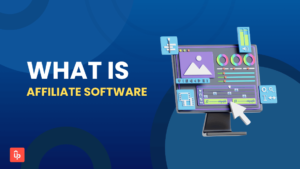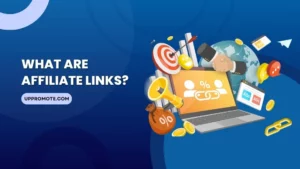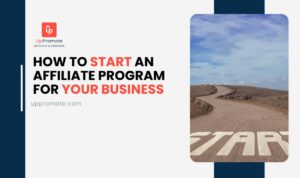Newbie affiliate marketers wonder about the perfect places to post affiliate links for free. We understand such a dilemma.
Affiliates post unique links to credit customers’ desired actions to their marketing efforts. It’s the surest way to earn an affiliate commission. Some marketers pay platforms for ad placement to increase promotional exposure. The more people see their ads, the higher their chances of generating sales.
But what if you’re like some beginners without sufficient budget to mount a paid affiliate marketing campaign? Worry no more. Here are seven proven platforms to post affiliate links without spending a dime.
Potential Revenue with Affiliates (UpPromote)
Estimate the potential revenue when you recruit affiliates: comparing Current Business and Business + UpPromote.
Estimated Impact
Quickly visualize how affiliates can boost your orders and revenue.
Revenue Comparison: Current vs. with UpPromote
The chart illustrates relative revenue growth comparing two scenarios: organic sales vs. organic + affiliate-driven sales.
- Affiliate traffic quality is equal to your current traffic.
- AOV and Conversion Rate remain stable.
- Does not account for churn, refunds, or potential upsell/cross-sell.
7 Best Places to Promote Affiliate Links for Free
Novice affiliates might want to stop worrying about where to post unique marketing links. The following locations should help you feel more upbeat about making money without spending on promotion.
Your Website
Websites leverage the power of search engines like Google and Bing. Did you know Google processes around 8.5 billion search queries daily? And we haven’t touched other search platforms.
Why does it matter?
People use the internet for various reasons. They search for information and solutions to daily issues. Consumers want to stay updated with product trends and brand offerings. So, they Google.
Google ranks websites according to predetermined metrics. It displays the URL most relevant to the search query on search pages.
Unfortunately, nearly three in ten internet users only click URLs on the first results page. Only 15% of users will know your website’s URL if it lands on Google’s second SERP.
Hence, you will want your website to land on Google’s first SERP to drive organic traffic.
How?
Learn Google’s SEO-centric algorithms and tweak your website to reflect these guidelines. Please don’t forget to create high-quality content (i.e., unbiased and authoritative product reviews, informative videos, and other customer-friendly resources).
Embed affiliate links in these creations without undermining Google’s policies. Show Google (and Bing) that you care about your target audience. You also comply with transparency laws and related policies. These tactics don’t cost you anything.
Social Media

Websites are great, but they entail web hosting costs. Many affiliate programs and networks allow posting links on social media sites. These platforms don’t charge you a penny for creating an account. The best part is you’ll access over five billion social media users.
Posting links on social media networks is free. However, some platforms have specific guidelines that affiliates must observe lest they risk getting the boot.
Facebook remains king in the social media world. It has over two billion daily users and three billion monthly Facebook fans. The social media platform requires affiliates to create an FB Business Page to promote products and post links. Meta emphasizes user experience, expecting advertisers to never intrude into FB users’ activities.
Meta also has Instagram. Although monthly active users are slightly fewer than Facebook (three billion vs. 1.4 billion), Instagram remains one of the most worthwhile places to post affiliate links for free. Please note that Instagram discourages hyperlinks in posts. However, you can tag affiliate offerings.
You can also post links on X (formerly Twitter) for free. It has nearly 370 million users monthly. Unfortunately, X posts often have shorter lifespans than Facebook and Instagram because tweets focus on the latest trends or hottest topics.
LinkedIn is another social platform worth posting affiliate links for free. This network is perfect for marketers catering to professionals and businesses. On the other hand, Pinterest is ideal for affiliates with a knack for visual creations.
Email Marketing
Email marketing is a cost-effective solution for promoting products and boosting sales. You can share exclusive, time-critical offers enticing audiences to act now. For example, you could give coupon codes and discounts when they buy within a predetermined period.
Everything starts with an email subscription. Website visitors or social media users can choose to receive emails from your affiliate business. They comprise the email list. Hence, you will want an attention-grabbing email subscription form.
But don’t stop with an eye-catching form. You must strive to deliver high-quality content through email. After all, email recipients expect value in every message they receive. You will want them to get excited when they see an email notification from their devices.

How?
Please don’t pepper each email with affiliate links. Instead, offer something interesting or valuable. You could create free online courses to make email recipients feel upbeat about reading your message. They’ll be more receptive to clicking links because you add value to their experiences.
You don’t have to post affiliate links in each email. An excellent alternative would be to send email recipients to blog posts with affiliate links. They can read your blog, learn a thing or two, and choose to click the link.
YouTube
YouTube follows Facebook in monthly usage with 2.9 billion users. Unsurprisingly, more than half of B2B marketing professionals use this platform. They know that seven in ten consumers watch high-quality video content to learn more about products.
And guess what?
Internet users spend a third of their online activities watching videos, with 23 in 25 people consuming videos weekly. For its part, YouTube satisfies viewers with over a billion hours of exciting videos daily.
So, how do you leverage these statistics?
You could post affiliate links on the YouTube video description. Alternatively, the comments section is an excellent place to post links, allowing viewers and followers to click them. Some publishers embed the link on the video itself.
We recommend reading YouTube’s publishing guidelines to optimize your affiliate link-posting campaign. Observe SEO-related best practices to boost your video’s ranking.
Did you know Reddit is more popular than LinkedIn, Pinterest, and Snapchat? This online community platform has around 850 million monthly users. Leveraging its reach to share affiliate links is a sound idea.
Reddit is a large online community with hundreds of subreddits or subgroups catering to shared interests. It’s more than an online forum. Reddit is a social network that encourages members to participate in discussions, offer expert advice, and share experiences.
For example, a new Reddit user asks about RV brand recommendations. You can post a link to your blog post about a particular RV brand in the comments section. You’re not directly promoting the product but encouraging the Reddit user to try reading your review.
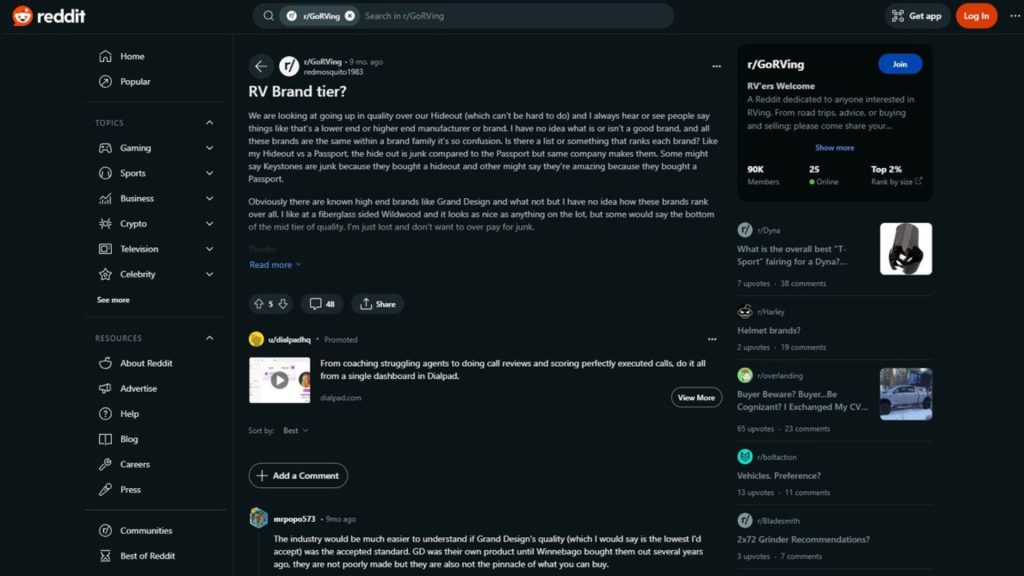
Reddit allows members to cast their votes on answers to queries. The more relevant the answer, the more up-votes you get. And that builds credibility and enhances expertise.
We recommend postponing affiliate link postings until you have established credibility on Reddit. Redditors want trustworthy members. The more authoritative your answers and comments are, the more Karma (Reddit’s unit of credibility) you earn.
You can post links on other traffic sources while waiting for your Reddit credibility and trustworthiness to soar.
Medium
The former co-founder of Twitter and Blogger, Evan Williams, envisioned a platform for aspiring and seasoned content creators, particularly writers or bloggers. Medium was that creation.
Launched in 2012, Medium is a favorite of publishers and bloggers. It’s an online resource for sharing life stories, useful knowledge, insightful perspectives, and life wisdom.
Hence, posting affiliate links on Medium should be easy. Affiliates only need to produce high-quality blog content. Articles must add value to readers’ lives – offer new insights, deliver additional knowledge, or convey a proven solution. Ensure the links have the correct context relative to your blog.
You can also reach more audiences by commenting on other Medium authors’ posts. Some affiliates also add authoritative Medium publishers to their bios. And if you have an extra budget, Medium has paid promotions to boost your campaign.
Community Groups & Forums
Reddit is an example of an online community forum. Many more exist in the virtual world. Each group shares common passions and interests, making them click with like-minded people.
It’s like a niche market where you can post links to people with the highest likelihood of buying your offerings (i.e., digital products, physical items, and subscriptions).
For example, you can join The Fashion Spot if you’re into fashion and style. You can meet and interact with fashion enthusiasts and influencers, discussing the latest design trends and collections.
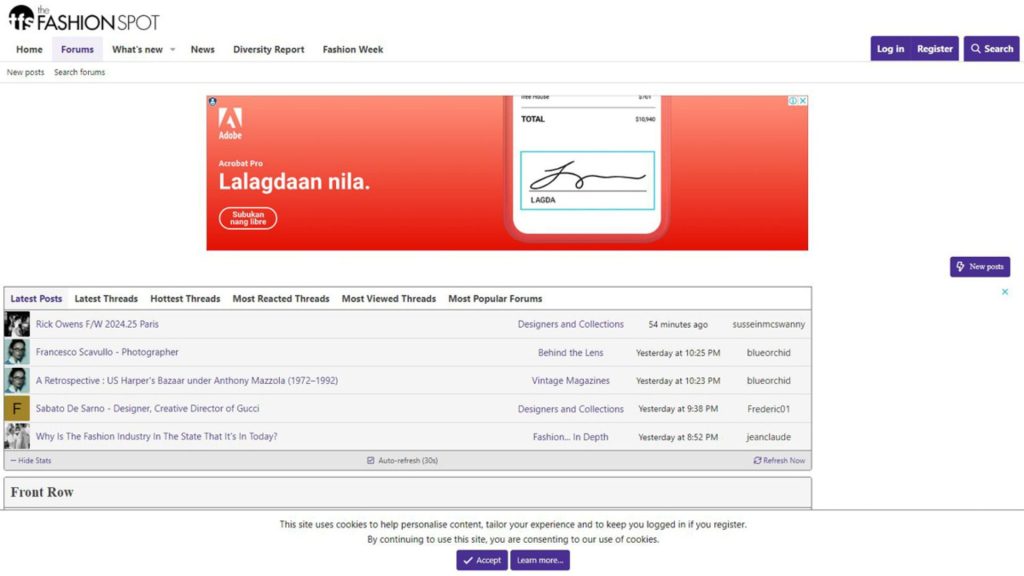
Online community forums vary in posting guidelines. Some might allow you to promote affiliate products, while others only encourage tagging. We recommend studying the group’s terms & conditions to avoid getting booted out of the community.
Comment on posts, striving to build credibility and subject authority. Like Reddit, you want to become a trustworthy commenter or member. Your posts and comments must add value to other members. You can post affiliate links on these platforms (for free) when you’re credible and trustworthy enough.
What is an Affiliate Link and How Does it Work?
As the name suggests, an affiliate link is a digital code unique to any affiliate marketer. The link ensures proper attribution or crediting of a validated customer action (i.e., subscribe to a newsletter, download a program, or buy a product).
Affiliate links contain two crucial elements – the destination landing page and the affiliate ID. For example, the URL “https://awesomedeals.com/?a=ABC123XYZ” shows which website the audience will go to (www.awesomedeals.com) and the affiliate who promoted the product (ABC123XYZ).
Some affiliate networks and programs might add UTM (Urchin Traffic Module) codes in their links to make attribution more specific.
For example, the URL “https://awesomedeals.com?a=ABC123XYZ&utm_source=facebook.com” suggests the affiliate promotion must come from Facebook.
Some programs allow link customization, including campaign name, offers, trial length, landing page, and other parameters.
Imagine a website visitor or social media user clicking an affiliate link. The destination landing page (i.e., product page) opens, and the user buys or executes other predetermined actions.
These actions have the affiliate’s unique identifier, allowing marketers to earn a commission from the validated transaction. Marketers will receive compensation for their efforts. That’s how affiliates earn a passive income promoting other people’s products.
Useful Tips to Promote Affiliate Links

Knowing where to post affiliate links is a key ingredient of an effective affiliate marketing strategy. The following tips should help you promote affiliate links more successfully.
Focus on creating high-quality content.
Everyone talks about quality or valuable content. Unfortunately, everyone varies in the interpretation of high quality. It’s subjective. Content might be meaningful for some audiences but useless for others.
So, how do you create high-quality content?
Study and analyze your audience’s motivations, pain points, and preferred platforms & channels. Appreciate their objectives or goals, including the problems or issues they experience. Do they prefer blogs to social media, or is it the opposite? Create buyer personas from these bits of information.
You can also examine competitors to understand why they have many customers. Do they offer something you don’t? Are there gaps in the competitor’s content that you can exploit?
Ask industry experts. They can offer insights into what people need or expect from businesses. Other businesses or entities with direct consumer relationships can be invaluable in identifying high-quality content.
You can also ask Bing or Google to find what people search for on the internet. It should give you a general idea of their pain points – something you can write about or create content for.
These pieces of information should help you create more convincing blogs, addictive videos, informative eBooks, productive interactive tools, effective templates, and entertaining social media posts.
Build and strengthen relationships with audiences.
Seasoned affiliates aren’t only concerned about boosting affiliate sales. They also care about relationships with audiences. Unsurprisingly, many affiliates have social media accounts to engage potential and existing customers.
We mentioned that many people are on social media (about five billion). We failed to mention that the average social media user spends about 140 minutes navigating various social media pages daily. They comment, like, follow, and share posts they find worthy.
You can leverage this social media behavior to promote affiliate links. Answering online community forum questions and sharing your thoughts and experiences can help build credibility.
People will recognize you as an authority on the subject. That makes your blogs, videos, emails, and social media posts more believable or credible. And people won’t mind you posting links to affiliate offers.
Why? Your relationship with them is strong. You will never worry about conversion rates because potential customers trust you.
Respect audiences’ need for transparency.

Trust is essential to affiliate success. You cannot expect people to do what you ask them (i.e., buy or download) if they don’t trust you. Part of establishing trust is disclosing your status as an affiliate marketer.
Telling people that your blog or video might contain information about a product of a particular affiliate program can be a double-edged sword. Some might choose to stay away from your content, although most will appreciate your honesty.
Those who decide to stay and read your affiliate-containing blog will become your steadfast supporters. They will trust you more because of your truthfulness. And that will prompt them to support your affiliate links.
Conclusion
You have many places to post affiliate links for free. From websites to social media and email, the possibilities are endless. Although these channels save you money promoting products, we must emphasize the importance of building trustworthiness and credibility.
You could flood multiple platforms with affiliate links and still produce less-than-stellar results. Why? Your intended audiences don’t trust you enough to make them click the link.
Hence, knowing where to post affiliate links is only a part of a successful strategy. A more crucial effort is building and strengthening your reputation. That’s how you win customers and make them supportive of your affiliate journey.




